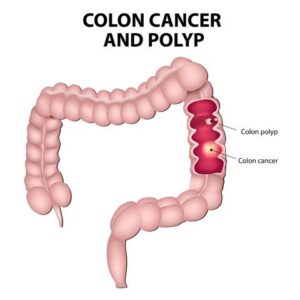
Colon cancer, also known as colorectal cancer, is one of the most preventable types of cancer — if detected early. Unfortunately, many people ignore the early warning signs until it’s too late. But here’s the good news: by understanding the symptoms and making simple lifestyle changes, you can reduce your risk and protect your health.
In this guide, we’ll walk you through essential prevention tips, early signs to watch for, and how to take action before it’s too late.
🚨 Early Signs of Colon Cancer You Should Never Ignore
Colon cancer often begins with small, noncancerous growths in the colon called polyps. These may not cause any noticeable symptoms initially, but as they grow, warning signs begin to appear.
Here are the top symptoms you should take seriously:
1. Persistent Changes in Bowel Habits
If you’re experiencing ongoing diarrhea, constipation, or a change in the consistency of your stool for more than a few days, it’s time to speak with a specialist.
2. Blood in Your Stool
Noticing blood in your stool or on toilet paper is one of the clearest red flags. It could be bright red or dark and tarry. Either way, don’t ignore it.
3. Unexplained Weight Loss
Losing weight without trying — especially if accompanied by fatigue or digestive issues — can be a sign your body is fighting something more serious.
4. Abdominal Discomfort
Frequent bloating, gas, or cramps that don’t seem to go away may signal a problem in your digestive tract.
5. Feeling That Your Bowel Doesn’t Empty Completely
Even after going to the bathroom, if you constantly feel like something is left behind, it could indicate something obstructing your colon.
✅ Colon Cancer Prevention Tips That Actually Work
Prevention starts with awareness and daily choices. Here’s what you can do to lower your risk:
1. Get Regular Screenings
Colonoscopies can detect polyps before they become cancerous. Most experts recommend screening starting at age 45, or earlier if you have a family history.
2. Eat More Fiber-Rich Foods
A high-fiber diet helps keep your colon clean. Load your plate with fruits, vegetables, beans, and whole grains. Fiber also helps you stay regular and reduces inflammation.
3. Limit Red and Processed Meats
Processed meats like bacon, sausages, and deli cuts are linked to an increased risk of colon cancer. Try to limit these and opt for lean proteins like fish or chicken instead.
4. Exercise Regularly
Being physically active for at least 30 minutes a day helps with digestion, reduces obesity risk, and strengthens your immune system.
5. Avoid Smoking and Excess Alcohol
Both smoking and heavy drinking increase your risk. If you smoke, consider quitting. If you drink alcohol, do so in moderation.
6. Stay Hydrated
Drinking plenty of water helps your digestive system work efficiently. Dehydration can lead to constipation and other gut issues.
7. Know Your Family History
If a parent or sibling has had colon cancer, your risk may be higher. In that case, start screening earlier and follow your doctor’s advice closely.
🌿 Natural Support for Colon Health
Want to go the extra mile? Here are some natural ways to support your digestive system:
- Probiotics: These healthy bacteria (found in yogurt and fermented foods) help maintain a balanced gut.
- Green tea: Known for its anti-inflammatory properties.
- Turmeric: This golden spice may have cancer-fighting effects due to its active compound, curcumin.
Remember, these are not cures but supportive tools. Always combine them with medical advice and screenings.
🩺 When to See a Specialist
If you experience any of the early warning signs, don’t delay. It’s crucial to consult a certified gastroenterologist. They are trained to diagnose and treat issues in the digestive tract, including the colon.
If you’re looking for reliable care, consider searching the top 10 gastroenterologist in Surat for expert guidance and timely diagnosis. Early intervention can make all the difference.
🔍 High-Traffic FAQs About Colon Cancer
Q1. Can young people get colon cancer?
Yes. While it’s more common in older adults, colon cancer rates in people under 50 have been rising. Awareness and screening are key.
Q2. Is colon cancer hereditary?
It can be. If you have a family history, you’re at higher risk. Genetic testing and early screening are highly recommended.
Q3. What is the survival rate of colon cancer?
When detected early, the survival rate is over 90%. That’s why recognizing symptoms and routine screening are vital.
Q4. What’s the best test for colon cancer?
A colonoscopy is considered the gold standard. It can detect and remove polyps in a single procedure.
Q5. How often should I get tested?
Generally, every 10 years starting at age 45 — but it depends on your personal and family history. Always consult your doctor.
🌟 Final Thoughts
Colon cancer is preventable, treatable, and often curable — but only if you take action. Listen to your body, don’t ignore warning signs, and make healthy lifestyle changes today. Early detection saves lives.
Stay informed, stay active, and take charge of your colon health now.
